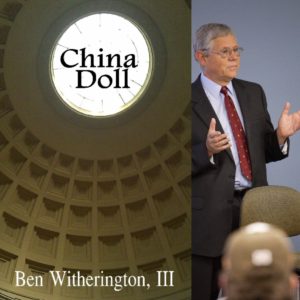Magdelena Hirt‘s Pacific Pieces builds on her previous chapbooks, creating a rare chronicle of a family’s life at sea. But this is not your usual logbook. “My rhythm is slight bounce / of the hull, motor-push, / current sway, dolphin play, / depth-watcher, lighthouse,” writes Hirt. With this lyric movement of push and sway, caution and play, Pacific Pieces carries us from Guatemala through the Panama Canal, around the Galapagos Islands and finally across the Pacific. There is danger here, on both land and water—from a bout with COVID to a spinnaker down. But the poet and her crew keep faith “in instruments and shipwright / hands,” and, always, in the expanse of sky and water. The abiding theme here is one of presence, and how a life at sea hones the attention to a fine point: “The point? What’s the point? Being now. / Living as the earth lives—in movement.”
–Laura Donnelly, author of Midwest Gothic
“The middle of nowhere is the center of everywhere” is a line from a French Polynesian poem, the closing poem in Maggie Hirt‘s arresting work, Pacific Pieces. After we’ve prevailed one harrowing experience after another in this third chapbook, we most certainly realize what life’s like without, shall we say, any landmarks. We are indeed in the center of everywhere aboard the sailboat that serves as full-time home for her, her husband, and their remarkable children. Describing each member of this family as embodying courage is an understatement. Again and again they encounter the forewarned yet unpredictable: upsurges of tumultuous waves, weather that can change before one can make adequate preparation, risks of tumbling overboard into seas populated by poisonous jellyfish, sharks, any deadly denizen happy to enjoy a flailing limb, of course Covid, and even pirates. Hirt not only takes her turns at the helm, but also fulfills her callings as mother, nurse, cook, and “mate” ready to take over or serve as enabler under any emergency. Somehow she works in the time to compose poems that reveal an artistry that creates the feeling of one event after another in tones, lines, timings, structures, fragments, and rhythms that evoke the experience they/we survive. Stunning is the poise of presence that comes through in each poem’s voice. Read Pacific Pieces with suspense and admiration, wondering through each poem how this family prevails over the pandemic in the Pacific, nowhere and everywhere.
–Jack Ridl, author of Practicing to Walk Like a Heron, named by ForeWords Review as co-recipient of the nation’s finest collection of poetry for 2013.
The sea is life’s rhythm throughout the sequences of poems that shape Pacific Pieces. On these waters “the wind puts the otherworld to sleep,” and “seductive night moves” weave their “pre-dawn secrets.” Those luminous secrets might be the trailing lights of a ghost ship, magical phosphorescence, dwindling stars, or the ladder of the Panama Canal “ushering the next step/ the next world.”
In these fine and ever-alert poems, Maggie Hirt continues her family’s journey, degree-by-degree, around the world. Lifting and falling with the seas, kids clamped in life jackets, a dead bird caught in the sail’s rigging, blue-footed boobies, the Southern Cross, but always “this labyrinth of water…water everywhere, so much blue.” These are substantial, uniquely informed and alert poems.
–Joel Lipman, 2022 Axon Creative Fellow, University of Toledo






Reviews
There are no reviews yet.